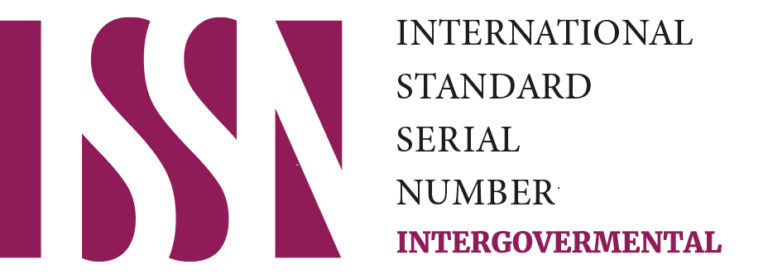ABSTRACT
| The unanimous advisory opinion of the International Court of Justice (ICJ) responds to inquiries concerning State obligations to address climate change posed by the United Nations General Assembly in 2023. It examined the obligations of States under the climate change treaty framework, customary international law, other relevant environmental treaties, the law of the sea, and, human rights law. It identified legal standards, including due dligence, that are to be used in determinng if a State is complying with its obligations. It then moves on to examine the legal consequences under these obligations where the States have, by acts or ommissions, caused harm to the climate system and other parts of the environent, this being the second inquiry of the General Assembly.
This advisory opinion showcases that law provides a method by which States can to work toward achieving the goals and objectives of climate change framework instruments. As well, it shows that States who have opted out of joining the framework instruments must meet international customary law standards. The July 23, 2025 Internatioal Court of Justice advisory opnion is salutory in helping States face the reality of climate change. It also sets legal standards to be employed and provides tools that can promote climate action, equity, and climate justice. |
|
NEW SECTION – Intergovernmental Research and Policy Journal
OPINIONS
The Opinions section will allow authors to contribute opinions within the parameters covered by the journal. Our objective is to encourage Euclid students to engage in leading research on important world issues in their academic work.
This opinion is written by a Euclid Professor who instructs climate change education. The opinion provides highlights from the International Court of Justice advisory opinion on climate change released July 23, 2025. It suggests ideas for research topics Euclid students may want to follow and invites students to continue the conversation with their research and policy work.
- Introduction
The advisory option of the International Court of Justice (ICJ) provides material to define a State’s obligations with respect to climate change. It does so after reviewing international law of treaties and customary law. While the opinion is non-binding, it is considered on the international plane to be highly authoritative for international litigation, and for informing national legislation and court decision making. As well, it has reinforced the legal benchmark of 1.5℃ following the IPCC’s scientific finding.
This article introduces the history of the 2023 call by the United Nations General Assembly (UNGA) for this advisory opinion, reviews the court’s comments on international law, and examines the key findings of State obligations and the legal consequences that can flow from failure to meet those obligations.[1] It will outline academic research that can be undertaken to assess the impact of the Court’s opinion. The article concludes by suggesting that the advisory option provides an important legal tool for States to move forward in achieving the objectives of the United Nations Framework Convention on Climate Change to stabilize greenhouse gas concentrations in the atmosphere at a level that would prevent dangerous human interference with the climate system.
- Call for Advisory Opinion
In 2023, the United Nations General Assembly (UNGA) members requested an opinion from the International Court of Justice (ICJ) on countries obligations to address climate change. The call had been initiated by a group of states, including, the pacific island, Vanuata that had been hit by adverse climate effects.[2]
2.1 Clarification Sought.
The Court was asked to comment on obligations of States about protection of the climate system from climate change caused by anthropogenic emissions of greenhouse gas (GHG). It was also requested to comment on the legal consequences that arise from States acts and omissions that have caused harm to the climate system and the environment.
2.2 Submissions Made
Countries and organizations gave written and oral statements and responded to questions from the judges. The matter attracted a record number of global submissions, with over 100 written submissions from countries, and international organizations.[3]
- The Scientific Target
The Court recognized the importance of the scientific benchmark of 1.5C as established by the IPCC which it followed in its deliberations. It affirmed that climate change to be an urgent and existential threat to humanity.
The Court went on to indicate that Nationally Determined Contributions set out in the Paris Agreement should be based on this climate target using high ambition and due diligence, being the legal standard set by the court.
- The Court’s Review and Findings
It is important to remember that this is a legal advisory opinion for international law, and that the words used by the Court are important. This article provides an overview of key findings made by the Court, but it is important that the advisory opinion be read in its entirety by State representatives, educators, policy makers, intergovernmental and non-governmental organizations, and interested readers.
The International Court of Justice reviewed relevant international treaties, including the United Nations Framework Convention on Climate Change (UNFCCC), Kyoto Protocol, and Paris Agreement. It also reviewed customary law in the context of environment and climate change. These treaties and customary law provide the basis of international law the Court used for its findings on legal obligations and duties. It was indicated there is no incompatibility between the three climate change treaties, the UNNFCCC, Kyoto Protocol, and Paris Agreement. Also, the Court determined that the inquiries of the General Assembly are interrelated.
An important finding was made that the treaties and broader international law such as human rights, the United Nations Charter, and other conventions work together, not as stand-alone legal instruments and laws.
4.1 Interaction of Treaties and Customary Law: Setting Legal Standards
The treaties and customary law support State duties to mitigate and adapt to climate change, as well as to cooperate to protect the environment.
It was indicated that breach of these obligations can trigger State responsibility. This responsibility includes ceasing the wrongful action, ensuring non-repetition of the wrongful conduct, and where the conduct is shown to have caused harm, providing reparation.
The Court addresses the legal consequences in a general manner, not with respect to individual States. This is important in setting a standard to be met by all States, using an objective approach.
Of importance are the ICJ’s comments on the interaction of obligations arising from the treaties as well the general obligations not to injure the environment from customary international law. While these laws have a separate existence, it is indicated that obligations arising from the climate change treaties and State practice in their implementation, inform customary law, and the rules of customary law for the environment and climate change likewise inform State obligations whether the State is a Party or a non-Party to the treaties. There is a burden on all States to demonstrate that their policies and practices are in conformance with customary law obligations. This is an important part of the advisory opinion regarding States that have opted out of joining the international treaties put in place to meet the climate change crisis.[4]
4.2 State Obligations and Legal Standards
The Court determined that under customary law States have a duty to prevent significant harm to the environment. For this obligation, a State is to use all means at its disposal to avoid activities in its territory, or areas under its authority, causing significant damage to the environment of another State.[5]
4.3 The Due Diligence Standard
Due diligence is the standard set for States to meet to prevent significant harm to the environment.[6] The standard of due diligence is a standard of conduct not one of result, meaning the State is not under an obligation to succeed but is expected to employ all reasonable means available to it to prevent harm.to the environment.
The Court assists States in understanding their due diligence obligations by providing examples of actions of due diligence: [7]
- Employing regulatory mitigation mechanisms designed to result in reductions of GHG emissions.
- Using adaptation methods to reduce the risk of serious harm occurring.
- Setting rules and measures to regulate public and private operators in the State’s authority, accompanied by enforcement and monitoring mechanisms.
- Employing scientific and technological information according to the State’s capacity.
- Undertaking independent risk assessments, and environmental impact statements, and notifying and consulting with others.[8]
4.4 Understanding Due Diligence
a) The Court indicates that due diligence standards may arise from binding and non-binding norms. The standards may be contained in treaties and , customary law. They can also arise from decisions made at Council of Parties, (COP) meetings for climate change treaties, and information obtained at these meetings about available technical norms and practices.
b) It indicates that the due diligence requirement depends on the circumstances of the State in question, which may evolve.
c) As the due diligence standard will guide a State`s obligations to prevent significant harm to the environment, it needs to be assessed for each situation, using an objective approach.
d) For assessing due diligence, the Court recognizes that States are not similarly placed and that the difference between capacities of States is one of the factors which determines the diligence required. This was indicated to call for an assessment in real terms, (Latin-in concreto), to determine what is reasonable given the circumstances of the State.
e) The due diligence standard may become more demanding as scientific and technological advances
f) The Court emphasizes that States need to share information and pursue technological cooperation but use available technologies with prudence and caution to avoid risk of harm and transboundary harm.
g) It indicates that climate change poses a quintessentially universal risk to all States and the standard of due diligence to prevent harm to the climate system is stringent.[9]
4.5 Consequences of Breach of Obligations
Breaches that occur under the treaties or customary law that my trigger State accountability. Should that be established, the responsibility may include the following legal consequences:
- Ceasing the activity is considered wrongful.
- Guarantee of non-repetition.
- Reparation which may include restitution, compensation, or satisfaction.[10]
The wrongful act may arise from breaches of treaty obligations or breaches of obligations under customary law. The Cout provides examples such as the failure to prepare NDCs under the Paris Agreement, and failure to exercise due diligence in regulating GHG emissions. The Court also finds international obligations are continuous even when a breach has occurred.
Comments on the duty of cessation and guarantees of non-repetition show that this is part of customary law which may require the State to cancel administrative, legislative and measures which were part of the wrongful act. It may also require the State to provide guarantees of non-repetition.[11]
Court findings on the duty to make reparation require that damage be illustrated by the injured State. It is also required that causation be established between the wrongful act of the State and the damage incurred by the injured State or where it relates to individuals, to the injured individuals.
Legal precedents show that reparation should wipe out the consequences of the wrongful act and reestablish, as much as possible, the situation that would have existed if there had been no breach. The Court indicates this may require the use of restitution, compensation, or satisfaction, or a combination of these remedies.
The Court comments that remedies to be applied must be determined on a case by case basis.[12] It also comments that the remedy of “satisfaction” has several forms including, expressions of regret, formal apologies, public acknowledgement(s), or statements, educating society about climate change, or even a formal declaration by an international court or tribunal of the wrong committed by the State.[13]
- Court Highlights
5.1 The advisory opinion sets the legal standard of international law for obligations of States for responding to climate change. The Court has adopted a universal approach to obligations. Each State has the right to seek responsibility in the case of breaches.
5.2 Although non-binding, this ICJ advisory opinion will be used by international and national courts as authoritative in handling climate change litigation, and alternative dispute resolution cases.
5.3 Climate change treaties set binding obligations for State parties to ensure the protection of the climate system and other parts of the environment from anthropogenic greenhouse gas emissions.[14]
5.4 Customary International law sets obligations for States to ensure the protection of the of the climate system and other parts of the environment from anthropogenic greenhouse gas emissions.
5.5. For matters 5.3 and 5.4, States must act with due diligence to prevent harm to the environment and to achieve temperature goals set out in the treaties. In addition, Sates have a duty to co-operate with one another in good faith to prevent significant harm to the climate system and other parts of the environment.
5.6 The Advisory Opinion is important for diplomacy between States.
5.7 Ongoing UN COP activities, including establishing the NDCs, and their negotiations.[15] will be informed by the advisory opinion, recognizing the Court’s comments on progressive NDCs. [16]
5.8 The advisory opinion illustrates the value of statutory interpretation and legal strength of words used in the Paris Agreement to show how the treaty establishes obligations for States to outline and communicate their climate actions. In this regard, the Court indicates that it is not sufficient to establish due diligence merely by preparing, communicating, and maintaining NDCs. The words of the Paris Agreement require a progression of a State’s NDC commitments that reflect the State’s highest ambition.[17]
- Future Academic Research
Future research can be conducted at the upcoming United Nations Council of Party (COP30) meeting in November 2025. One of the items to be addressed at the COP meeting is Party NDCs. Research can be conducted to assess whether the ICJ advisory opinion has resulted in the Parties increasing their NDC commitments.
In addition, review of Party NDCs made by States at COP30 can be compared with those recorded at the First Global Stocktake of COP28 to ascertain if Parties have responded to the need to increase their NDCs.
Research can be conducted for International, and National case law for environmental and climate change matters mentioning the advisory opinion of the ICJ.
- Conclusion
The advisory option of the International Court of Justice (ICJ) responds to the 2023 General Assembly’s request for responses to inquiries on State obligations to address climate change and consequences that States can face for breaches of those obligations. It does this by making a thorough review of international legal instruments and customary law on climate change. Although advisory in nature, its impact provides authoritative international law to inform States in developing their climate change activities, legislation, litigation, and UN Council of Parties activities. It has informed Parties of their NDC obligations, and presented opportunities for States to seek remedies for acts and omissions of other States that have injured them.
The International Court of Justice’s advisory opinion provides answers to the long-awaited legal rules to be applied to States and sets out important legal standards to be met. The advisory opinion is predicated on maintaining the legal benchmark of 1.5℃ by establishing legal standards for State obligations. It provides opportunities for climate action, equity, and justice between States. It is now for the International community of States to respond to the advisory option of the International Court of Justice.
- Conflict of Interest
The author declares there is no conflict of interest.
Biography and References
Ambrose, Jillian, and Jillian Ambrose Energy correspondent. ‘Countries Failing to Act on UN Climate Pledge to Triple Renewables, Thinktank Finds’. Environment. The Guardian, 30 July 2025. https://www.theguardian.com/environment/2025/jul/31/countries-failing-act-un-climate-triple-renewables-cop28.
Bennett, Paige. ‘Earth Overshoot Day Reaches Record for Earliest Date’. Eco Watch, 28 July 2025. https://www.ecowatch.com/earth-overshoot-day-2025.html.
General Assembly Votes to Seek World Court’s Opinion, in Quest for “Bolder” Climate Action | UN News’. 29 March 2023. https://news.un.org/en/story/2023/03/1135142.
González, Fernanda. ‘The ICJ Rules That Failing to Combat Climate Change Could Violate International Law’. Tags. Wired, n.d. Accessed 28 July 2025. https://www.wired.com/story/the-icj-rules-failing-to-combat-climate-could-be-a-violation-of-international-law/.
IISD Earth Negotiations Bulletin. ‘Highlights and Images for 23 July 2025’. Accessed 24 July 2025. https://enb.iisd.org/international-court-justice-advisory-opinion-climate-change-23Jul2025.
IISD Earth Negotiations Bulletin. ‘Summary Report 23 July 2025’. Accessed 30 July 2025. https://enb.iisd.org/international-court-justice-advisory-opinion-climate-change-briefing-note.
International Court of Justice Decision July 23, 2025, 187-20250723-Adv-01-00-En.
Kaminski, Isabella. ‘Nations Who Fail to Curb Fossil Fuels Could Be Ordered to Pay Reparations, Top UN Court Rules’. Environment. The Guardian, 23 July 2025. https://www.theguardian.com/environment/2025/jul/23/healthy-environment-is-a-human-right-top-un-court-rules.
Milman, Oliver. ‘Trump Effort to Ditch Greenhouse Gas Finding Ignores “Clearcut” Science, Expert Says’. Environment. The Guardian, 24 July 2025. https://www.theguardian.com/environment/2025/jul/24/trump-effort-rescind-endangerment-finding-climate-crisis.
Nationally Determined Contributions (NDC) Tracker | 2025 NDCs | NDCs 3.0 | Climate Watch’. Accessed 29 July 2025. https://www.climatewatchdata.org/ndc-tracker?apcid=0065df7889a39963db4d5e02&utm_campaign=wri-climate-digest-july-20&utm_content=wri-climate-digest-july-20&utm_medium=email&utm_source=ortto.
Shah, Simmone. ‘Countries Have Legal Duty to Tackle Climate Change Says ICJ’. TIME, 23 July 2025. https://time.com/7304900/icj-landmark-climate-opinion/.
Spain Welcomes ICJ Advisory Opinion on Obligations of States in Respect of Climate Change’. Accessed 1 August 2025. https://www.exteriores.gob.es/en/Comunicacion/Comunicados/Paginas/2025_COMUNICADOS/Espana-celebra-la-opinion-consultiva-de-la-Corte-Internacional-de-Justicia-sobre-las-obligaciones-de-los-Estados-respecto-a.aspx.
Team, Guardian environment. ‘The Big Emitters: Which Countries Are Holding Back Climate Action and Why?’ Environment. The Guardian, 18 July 2025. https://www.theguardian.com/environment/2025/jul/18/the-big-emitters-which-countries-are-holding-back-climate-action-and-why.
The Court Gives Its Advisory Opinion and Responds to the Questions Posed by the General Assembly. n.d.
The Hague – The International Court of Justice (ICJ) Delivers Its Advisory Opinion on the Obligations of States in Respect of Climate Change | UN Web TV’. 23 July 2025. https://webtv.un.org/en/asset/k1c/k1cg72yf19.
World Court Says Countries Are Legally Obligated to Curb Emissions, Protect Climate | UN News’. 23 July 2025. https://news.un.org/en/story/2025/07/1165475.
[1] International Court of Justice, Advisory Opinion, o7&23&2025, https://www.icj-cij.org/sites/default/files/case-related/187/187-20250723-adv-01-00-en.pdf.
[2] General Assembly Votes to Seek World Court’s Opinion, in Quest for “Bolder” Climate Action | UN News’. 29 March 2023. https://news.un.org/en/story/2023/03/1135142.
[3] IISD Earth Negotiations Bulletin. ‘International Court of Justice Advisory Opinion on the Obligations of States in Respect of Climate Change’. Accessed 23 July 2025. https://enb.iisd.org/international-court-justice-advisory-opinion-climate-change.
[4] International Court of Justice, Obligations of States in Respect of Climate Change, Advisory Opinion, 23 July 2025., paragraphs 314, 315
[5] Ibid, paragraph132.
[6] Ibid, paragraph 135.
[7] Ibid, paragraphs 280-300.
[8] Ibid, paragraph 135.
[9] Ibid.paragraph 138.
[10] Ibid, paragraph 457.
[11] Ibid, paragraphs 447-448.
[12] Ibid, Paragraphs, 450-454.
[13] Ibid, paragraph 455.
[14] Ibid, paragraog 457.
[15] Ibid, paragraphs 237-254.
[16] Ibid, paragraphs 233- 258.
[17] Ibid, paragraphs 236-254.







